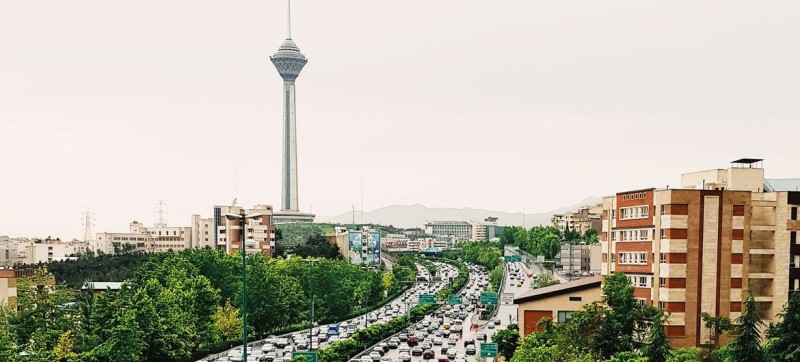
Unsplash/Mehrshad Rajabi Hakim Expressway, Tehran, Iran.
“Like many countries, Iran has environmental issues. The sanctions not only prevent the Iranian Government from addressing them effectively; they contribute to making the challenges worse,” the group of Special Rapporteurs and the Independent Expert on international solidarity, said in a statement.
Tweet URL
Tehran pollution, ‘no surprise’
Air pollution is a particular concern and reportedly causing higher levels of respiratory and other diseases among residents, that lead to an estimated 4,000 premature deaths per year in the capital Tehran and 40,000 premature deaths annually across the country.
“It is no surprise that Tehran is one of the world’s most polluted cities”, the experts stated. “US sanctions force people to prolong the use of older vehicles that burn fuel less efficiently, while making it impossible for Iran to obtain equipment and technology to reduce vehicle emissions”.
The US has had unilateral sanctions in place against Iran since the revolution of 1979, and sanctions remain in place in connection with the stalled Joint Comprehensive Plan of Action (JCPOA), more commonly referred to as the Iran nuclear deal. President Donald Trump withdrew from the deal in 2018.
They experts added that US efforts to enforce its sanctions by threatening to penalise foreign companies doing business in Iran, have led foreign car manufacturers to leave. “So, Iran must rely on locally made motors and other equipment that cannot use the latest technologies,” they said.
Solar plants blocked
In an official communication to the US Government in September, the experts said sanctions had also led foreign energy firms to abandon projects to build large solar power plants in Iran, on a scale that domestic companies are unable to match.
“This is also a result of the sanctions,” they said, “since they prevent foreign investment.”
The Human Rights Council-appointed experts noted that the sanctions impede Iranian scientists from engaging in joint environmental research projects abroad, and even prevent Iranians from accessing online databases and courses about environmental issues and sustainability.
“The effects of the sanctions on the right to education and the right to benefit from scientific progress are also blocking progress in improving Iran’s environment,” they said.
The UN General Assembly recognised the human right to a clean, healthy and sustainable environment in a resolution it passed in July 2022 – a resolution backed by the US, the experts noted.
Contradiction
“The US obviously recognises a clean environment as a right that affects other human rights,” they said, noting that the US referred to environmental quality as important to human health when it agreed this year to cooperate with the World Health Organisation (WHO) over environmental improvements.
“The sanctions against Iran contradict what seems to be a clear US position on this matter”, they said.
“It is time for sanctions that impede Iran’s ability to improve the environment and reduce the ill effects on health and life, to be eased or lifted completely so that Iranians can access their right to a clean environment, the right to health and to life, and other rights associated with favourable environmental conditions”.
Special Rapporteurs and independent experts are appointed by the Geneva-based Council to examine and report back on a specific human rights theme or a country situation. The positions are honorary and the experts are not paid for their work.

